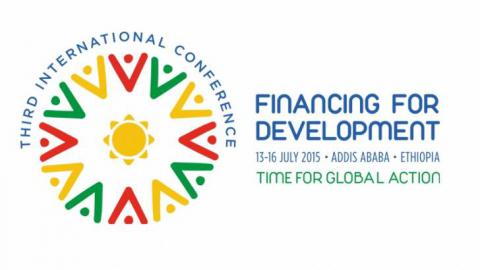
While UCLG agrees with the UN that the Addis Ababa Action Agenda (AAAA), will be indispensable for the implementation of the Post-2015 Agenda, they also stated a number of concerns in reaction to the Agenda (please follow this link for the whole statement).
Last week, 193 UN Member States agreed on the AAAA at the third International Conference on Financing for Development in Addis Ababa, Ethiopia. The agreement reaffirms the commitment of developed countries to dedicate 0.7% of GDP to development aid (with a target of 0.15 to 0.20% ODA/GDP for LDCs by 2030).The UN described the AAAA as “historic” and “ground-breaking”, underlining that the agreement contains more than 100 measures relating to infrastructure, social protection, technology, trade, support to micro, small and medium enterprises and capacity building. UCLG agrees that the AAAA will be indispensable for the implementation of the Post-2015 Agenda. However, they also state a number of concerns in a reaction to the AAAA
One of the main concerns raised by UCLG is that the AAAA insufficiently addresses the issue of urbanisation. According to UCLG, the infrastructure commitments made in Addis Ababa need a stronger urban focus to address the specific demands of growing urban areas over the coming decade. UCLG states that “Urban investments will need to double or triple over the next 15 to 20 years to prevent the growth of slums and ensure access to basic services to all urban-dwellers”.
Furthermore, UCLG shares the mixed feelings of other stakeholders regarding the level of ambition of the AAAA and its ability to ensure adequate Means of Implementation for the Post-2015 Development Agenda.
Despite these concerns, the AAAA does represent a step forward in the recognition of the role of local and regional governments in the financing for development agenda, as mentioned in the position paper of the Global Taskforce. The AAAA includes general commitments to support the financing and capacities of subnational governments (para 34), their inclusion in the Global Partnership for Sustainable Development (para 10) and in the follow-up process (para 130). The "localization" of financing for development will need, however, the development of further concrete actions and commitments for real achievements in territories.
Local and subnational delegation
A delegation of around 60 local representatives from 20 countries attended the conference, including UCLG Co-Presidents, the CLGF Vice-President, a high-level delegation from UCLGA, CLGF and FMDV, and local authority representatives from Argentina, Benin, Botswana, Cameroon, Cape Verde, Ethiopia, France, Indonesia, Ivory Coast, Lesotho, Mauritania, Morocco, Netherlands, Mozambique, Senegal, Seychelles, Somalia, South Africa, Tanzania, Uganda, Zambia and Zimbabwe. Local representatives participated in four of the six interactive Multi-Stakeholder Round Tables of the Conference, sharing their experiences and proposals with Members States, international organizations, representatives of civil society and the private sector. In addition, the Global Taskforce and its partners, including UN-Habitat, UNCDF, UNISDR, the French Government and the OECD, organized eight side events on the role of local and regional governments in financing for development, the Post-2015 Agenda and the financing of urbanisation and sustainable development.
